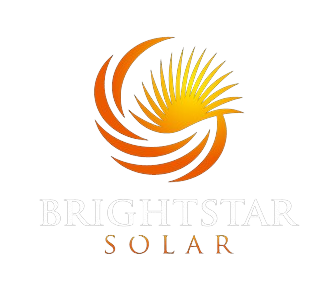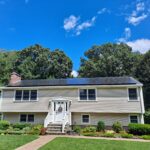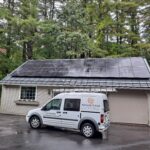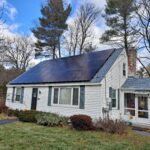Making an investment in solar power is a smart decision, but installing it yourself could be a big mistake. Most DIYers, who want to take on a solar project, may do it for the learning experience or to save money. I think it is great that individuals want to get educated about how solar works, but I don’t think they should do that at the expense of their own safety. Here are a few reasons why you may change your mind about a DIY solar installation:
- Electrical Work is Dangerous – With the wiring involved in solar electric installations, there is always the risk of electrocution if precautions aren’t taken. I’m not sure about regulations in other states, but Massachusetts requires that solar electrical work be done by electricians.
- DIY Solar May Not Qualify for State Incentives – Most people take on a do-it-yourself solar project because of the cost savings. They don’t think about the rebates they may be sacrificing if they execute the project by themselves. States, such as Massachusetts, require that a licensed installer do the work in order to qualify for the Mass Solar Loan program and associated incentives.
- DIY Solar May be Ineligible for Grid Interconnection – Most utilities allow renewable energy systems to interconnect to the grid, but impose standards on system design. A grid-connected PV system allows you to draw power from the grid at night when you are not generating solar energy. It also allows you to push excess solar power back to the grid during the day if you are generating more than you need.
- Solar Should be Built to Last – DIYers may not have access to the same high-quality components (panels, inverters, mounting equipment) or the techniques that solar installers generally use. Systems are designed to be on your roof for 25 or 30 years so quality of the installation and the durability of the equipment are especially important.
- An Installer Can Customize Solar for your Needs – Distributors now offer packaged self-installation kits. These kits don’t offer much flexibility with the design and could offer limited power output. If you contract the work, the contractor can customize the installation to maximize your roof space for power production.
Before you proceed with a do-it-yourself solar installation, I recommend you contact a local solar installer, such as Brightstar Solar. They can talk about the differences that you expect with DIY project versus a contracted solar installation. Brightstar Solar is a Massachusetts solar installer that will work with our customers to navigate the installation process, maximize incentives, and manage the rebate and permitting paperwork involved. If you have a home or business in Massachusetts and are interested in solar power, please contact us for a free evaluation.








Pingback: Tweets that mention The Drawbacks of DIY Solar Installations — BRIGHTSTAR SOLAR -- Topsy.com